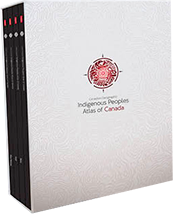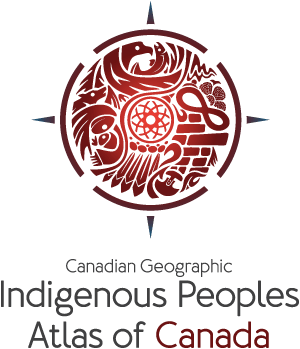Research
The word “research” invokes strong reactions among Inuit today. Despite the ongoing need for Inuit-specific data that can be used to shape solutions for challenges facing Inuit, those actually benefiting from research involving Inuit, wildlife and the environment have predominantly been non-Inuit researchers and research institutions. While we recognize the important role that research can play in informing actions that create safer, healthier and more resilient communities, Inuit from across Inuit Nunangat have long insisted that researchers and research institutions respect Inuit self-determination through partnerships that enhance the efficacy, impact and usefulness of research.
Severe social inequity between Inuit and most other Canadians has been noted by the federal government, the research community and internationally as a whole. That social inequity is rooted in egregious policies of the past. Prior to the Second World War, most Inuit lived in seasonal camps on the Land. Many families were coerced or forcibly relocated into permanent settlements by the federal and provincial governments in the 1950s as a way to streamline the administration and provision of services such as education and health care. In these settlements, stressors like household overcrowding, infectious diseases and residential schools deeply affected many families against a backdrop of rapid social, spiritual and economic upheaval. The trauma caused by these experiences, coupled with inequities in infrastructure and services, is linked to the elevated rates of poverty and violence as well as the poor mental and physical health faced by many Inuit today.
Research relationships in Inuit Nunangat have evolved in recent years to include partnerships between Inuit and academic institutions, researchers and governments. Inuit have applied this research and pursued Inuit-specific research priorities to support advocacy and help create social equity. However, these partnerships have tended to be sporadic, with limited mandates. Inuit self-determination in research requires that Inuit priorities no longer be ignored or marginalized by governments, researchers and research institutions.

Inuit priorities should be identified by funding agencies, and should influence how research priorities are determined, the composition and function of research governance bodies and the funding eligibility criteria for research grant applicants. Research has an integral role to play in creating social and economic equity for Inuit and, in turn, benefiting all Canadians.
In 2018, Inuit Tapiriit Kanatami and the Inuit Qaujisarvingat National Committee finalized and published the National Inuit Strategy on Research. The NISR defines Inuit expectations for the role of research in our regions and communities and identifies areas for partnership and action between Inuit and the research community. It is a concise articulation of how the governance and conduct of Inuit Nunangat research can be improved to ensure that it is both impactful and useful for Inuit communities.
The NISR identifies five priority areas in which coordinated action is necessary to create this positive model for research. It also identifies practical steps to advance Inuit self-determination in research as a means for fostering respectful and beneficial research that serves the needs and priorities of Inuit. The priority areas are:
To advance Inuit governance in research, to enhance the ethical conduct of research, to align funding with Inuit research priorities, to ensure Inuit access, ownership and control over data and information, to build capacity in Inuit Nunangat research
The NISR outlines a holistic approach to shared Inuit and research stakeholder action. There must be a shared understanding of the legacy of Inuit Nunangat research, connecting this legacy to the current research context. Inuit expectations for the role of research in our regions and communities must be defined. And, finally, we must determine key areas for partnership and action between Inuit and the research community. Inuit self-determination in research will produce new knowledge that empowers our people in meeting the needs and priorities of our families and communities. It is a means for ensuring that research governance bodies, policies and practices are consistent with the Inuit vision.
There must be a shared understanding of the legacy of Inuit Nunangat research, connecting this legacy to the current research context.
Inuit are seeking to ensure that research carried out in our homelands benefits Inuit communities, and that governments and researchers must respect Inuit’s right to self-determination, including in the area of research governance. Inuit have the greatest insight into the nature of the challenges facing their own families and communities, coherent ideas to address those challenges and the strongest incentives to use research as a tool for developing and implementing innovative solutions to society’s problems. Research in Inuit Nunangat has a constructive role to play in shaping the policies, programs and decisions that impact the everyday lives of Inuit.


Order now
from Amazon.ca or Chapters.Indigo.ca or contact your favourite bookseller or educational wholesaler




